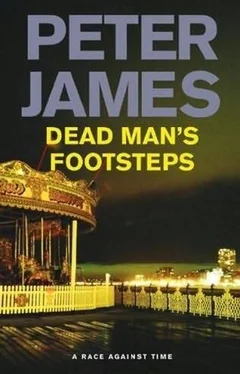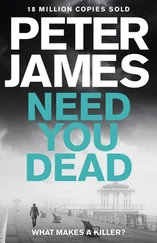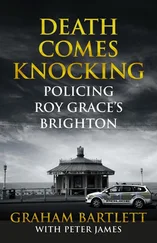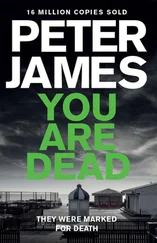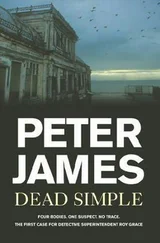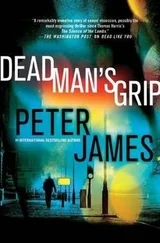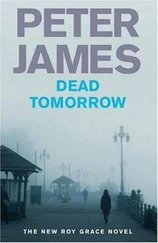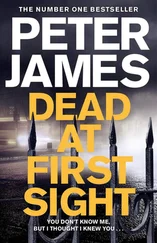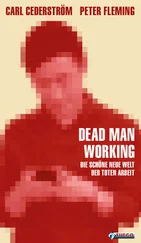‘You said yourself at the time you thought it was smart, didn’t you?’
‘Yeah, but I wouldn’t invest in any business Ronnie was running. Done it twice before and both went down the toilet.’ He shrugged. ‘You need more than a good idea to make a business work.’ He glanced at his watch and looked a little agitated.
‘Mr and Mrs Klinger,’ Bella said, ‘did you have any idea that Lorraine had come into a substantial amount of money in the months before she – seemingly – ended her life?’
Sue shook her head vigorously. ‘No way. I’d have been the first to know. Ronnie left her in a terrible mess, poor thing. She had to go back to work at Gatwick. She couldn’t get any credit because of all the judgements against Ronnie. She couldn’t even scrape enough cash together to buy a car. I even lent her a few hundred quid to tide her over at one point.’
‘Well, this may come as a surprise to you both,’ Glenn said, ‘but Ronnie Wilson had a life insurance policy with the Norwich Union which paid out just over one and a half million pounds to Lorraine Wilson in March 2002.’
Their shock was palpable. Then he added to it.
‘Further, in July 2002, Mrs Wilson received a payment of nearly two and a half million dollars from the 9/11 compensation fund. About one and three-quarter million pounds at the exchange rate at that time.’
There was a long silence.
‘I don’t believe it. I just don’t believe-’ Sue shook her head. ‘I know at the time she disappeared the police officers we spoke to didn’t seem entirely convinced that she had committed suicide by jumping off the boat. They didn’t say why. Perhaps they knew something then that we didn’t. But Stephen and I, and all her friends, were convinced she was dead, and none of us has heard a single word from her since.’
‘If what you are saying is true, that’s-’ Stephen Klinger broke off in mid-sentence.
‘She withdrew all of it, in cash, in different amounts, between the time she received the money and her disappearance in November 2002,’ Bella said.
‘Cash?’ Stephen Klinger echoed.
‘Would either of you have any idea if the Wilsons – or more likely Ronnie – was being blackmailed by anyone?’ Glenn asked.
‘Lorraine and I were very close,’ Sue said. ‘I think she’d have told me – you know – confided in me.’
The way she confided in you about the three and a quarter million quid! Glenn thought.
Stephen Klinger suddenly stabbed a finger in the air. ‘There’s one thing – could be that Ronnie had taught her this. He liked to trade stamps.’
‘Stamps?’ Glenn said. ‘Like postage stamps, you mean?’
He nodded. ‘Big-ticket ones. He always traded them for cash. Reckoned it was harder for the Revenue to keep tabs on him.’
‘Three million plus pounds would be an awful lot of stamps,’ Bella said.
Stephen shook his head. ‘Not necessarily. I remember Ronnie opening his wallet one night in a pub and showing me this one stamp, all in tissue paper, just one stamp he’d paid fifty grand for. Reckoned he had a buyer who would pay sixty for it. But knowing his luck, he probably ended up getting forty.’
‘Would you have any idea where Mr Wilson did his stamp trading?’
‘There’s a few local dealers he told me he used, for smaller stuff. I know he dealt with a place called Hawkes down Queen’s Road sometimes. And with one or two places in London, and in New York, as well. Oh yeah, and he used to talk about some big player who deals from home – can’t remember his name – he’s just around the corner in Dyke Road. Someone at Hawkes would be able to tell you.’
Glenn noted the name down.
‘He did say that at the top end of the market it’s a very small world. If any dealer made a large sale, everyone in the business would know about it. So if she spent that kind of money on stamps, someone’s going to remember.’
‘And presumably,’ Bella said, ‘someone would also remember if she sold them.’
OCTOBER 2007
It was Duncan Troutt’s first day on patrol as a fully fledged police officer. He felt rather proud, rather self-conscious and, in truth, a little nervous of screwing up.
At five feet nine inches tall and just under ten stone, he cut a slight figure, but he knew how to look after himself. A long-time fan of martial arts, he had attained a whole raft of certificates in kickboxing, taekwondo and kung fu.
His girlfriend, Sonia, had given him a framed poster which read:
YEA, THOUGH I WALK ALONE THROUGH THE SHADOW OF
THE VALLEY OF DEATH, I FEAR NO EVIL, FOR I AM
THE MEANEST SON OF A BITCH IN THE VALLEY.
Right now, at 10 a.m., the Meanest Son of a Bitch in the Valley was at the junction of Marine Parade and Arundel Road, at the eastern extremity of Brighton and Hove. Not exactly a valley. Not even a small dip, really. The streets were calm at the moment. In another hour or so the drug addicts would be starting to surface. One statistic that the local tourist board did not like to advertise was that the city had the second largest number of injecting drug users – and drug deaths – per capita in the UK. Troutt had been warned that a disproportionately large share of them appeared to live on his beat.
His radio crackled and he heard his call sign. He answered it with excitement and heard the voice of Sergeant Morley.
‘All OK, Duncan?’
‘Yes, Sarge. So far, Sarge.’
The area of Troutt’s beat extended from the Kemp Town seafront back to the Whitehawk estate, which housed, historically, some of the city’s roughest and most violent families – as well as many decent folk. And recent community policing initiatives were resulting in big and positive changes. The warren of terraced streets in between contained the transients’ world of rooming houses and cheap hotels, a prosperous urban residential community, including one of the largest gay communities in the UK, and dozens of restaurants, pubs and smaller independent shops. It was also home to several schools as well as the city’s hospital.
‘Need you to check out a person of concern. A woman reportedly in an anxious state.’ He then outlined the circumstances.
Troutt pulled out his brand-new notebook and wrote down the name, Katherine Jennings , and her address.
‘This has come from the Inspector, and I think it’s come down from someone high up in the brass, if you know what I mean.’
‘Absolutely, Sarge. I’m very close – will attend now.’
With a new urgency to his stride, he strutted along blustery Marine Parade and turned left away from the seafront.
The address was a mansion block of flats, eight storeys, and there was a builder’s lorry, as well as a van from a lift company, double-parked in the street. He passed a grey Ford Focus that had a parking ticket taped to its windscreen, crossed over and walked up to the front entrance, stepping aside to let two men carry in a large sheet of plasterboard. Then he looked at the doorbell panel. There was no name against number 82. The PC pressed it. There was no answer.
At the bottom of the panel was a bell for the caretaker, but as the front door was wedged open he decided to go in. There was an out of order sign taped across the front of the lift, so he took the stairs, treading carefully up the trail of dust sheets, slightly irritated that the shoes he had carefully polished last night were getting caked in dust. He heard hammering and banging and the sound of drilling directly above him, and on the fifth floor he had to negotiate an obstacle course of building materials.
He walked on up and reached the eighth floor. The door to Katherine Jennings’s flat was directly in front of him. The sight of three separate locks on it, along with the spyhole, aroused his curiosity. Two was not unusual, as he knew from his experience of visiting homes that had suffered repeated break-ins in the Brighton crime hotspots. But three was excessive. He peered more closely at them, noting that they all looked substantial.
Читать дальше
